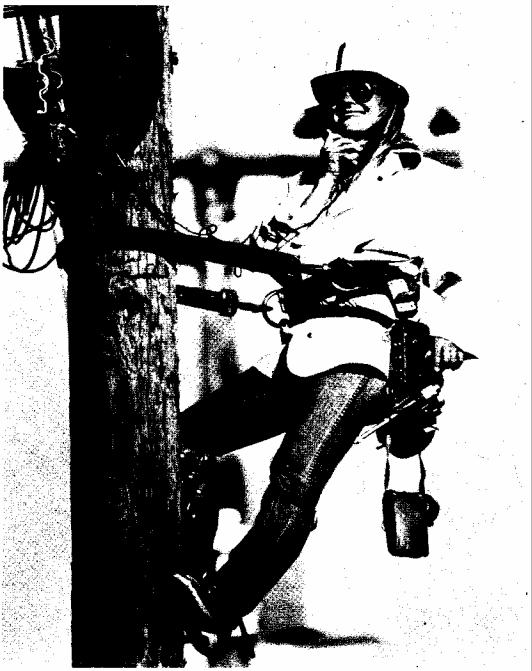
Beyond Language
.pdfEducational Attitudes 127
F.Discuss the following questions about your own culture. Compare and
Cross-
Cultural
Questions
contrast your responses with those of the other students.
1.Are subjects such as politics, foreign policy, and social problems taught in high school or university courses? In your opinion, should they be taught?
2.Are subjects such as marriage, sex, birth control, parenthood, and divorce taught in high school or university courses? In your opinion, should they be taught?
3.Are there any courses or subjects taught that you feel are com pletely useless? Are there any that should be added to the curricu lum?
4.When students leave high school, are they well prepared for life outside school? Explain.
5.Does everyone receive an education? Until what age is education mandatory? Is education free?
6.Is there a separation between religion and education or is religion part of the school curriculum?
Cultural Notes
1.During the first two years of an undergraduate education, a student must take some required courses which are usually not part of his or her major. An undergraduate in engineering, for example, is required to take general courses in the fields of history, sociology, and others. Under graduates generally begin to specialize in the third year although they may have taken prerequisite courses in their major field during the first two years. Students are required to take general education courses so that they become "well-rounded." Students are expected to graduate with knowledge other than that in their field of specialization.
2.The grading system usually uses letters (A, B, C, D, F) with corre sponding grade points (4,3,2,1,0) that make up the G.P. A. (grade-point average).
3.Professors decide their own method of grading. Some instructors use the curve grading system, which is based on a formula that calculates a certain number of A's, B's, C's, D's, and F's. In other words, a profes sor knows what percentage of his or her students will receive an A, B, C, D, or F. A student's score is calculated relative to the other students' scores.
128Educational Attitudes
4.Academic counselors are available to help students choose classes and majors and arrange schedules.
5.International student advisors can help with specific problems con cerning immigration, visas, and other such areas.
6.On many campuses there are "clinics" and "centers" that deal with specialized problems: psychological counseling services, study skills centers, and math or business clinics are often available to students. Academic counselors can usually recommend where to go for these services.
7.There are other on-campus and off-campus services for students such as professional typing, and tutoring in many subjects. Some of these services are free; others are not. Often department secretaries or pro fessors can suggest names of proficient students who tutor others in particular subjects. School newspapers also list special services in the "Classified Ads" section.
Supplementary Vocabulary and Phrases
instructor |
credits/units |
|
professor |
credit/no credit |
|
faculty |
pass/fail |
|
department |
requirements |
|
dean |
prerequisites |
|
chairperson, chairman, chairwoman |
electives |
|
undergraduate ("undergrad") |
transcript |
|
graduate ("grad") |
registration |
|
freshman |
tuition |
|
semester/quarter system |
||
sophomore |
||
to add a class |
||
junior |
||
to drop a class |
||
senior |
||
on campus |
||
lower division |
||
off campus |
||
upper division |
||
extracurricular activity |
||
major/minor |
||
|
Common Abbvreviations;
G.P.A. = grade-point average
B. A. /B. S. = bachelor of arts/bachelor of science
M.A./M.S. = master of arts/master of science
Ph.D. |
= doctorate |
Prof. |
= professor |
Educational Attitudes 129
Subjects
Econ. = economics
Phys. Ed. (P.E.) = physical education
Math |
= mathematics |
Chem. |
= chemistry |
Bio. |
= biology |
Poli. Sci. |
= political science |
Psych. |
= psychology |
Soc. |
= sociology |

7
Work Values
factory Worker—Age 37:
My boss says that I have a bad attitude about work because I don't get excited on the job. How can I get excited about working on an assembly line when I do the same thing all day long? I'm tired and I want to sit down. I'd like to tell the foreman of the factory to get lost.'
Elementary School Teacher—Age 37:
I walk into a classroom and I've got an enormous amount of power. I'm 6 foot 7 inches and here are these 9-year-old fourth graders. . . . The children all listen when I speak. I am the big father figure. They all love me and I take care of them. It's great for my ego.2
Corporation President—Age 26:
When I started making money I just went crazy . . . I bought a condominium and a home. I could never retire. It gets inside of you. If you don't progress every day, you feel you've wasted it. That's a day you'll never get back. . . . I usually get out of my office at one o'clock in the morning. I go home and eat dinner at two. . . . I'm down at the office Saturdays too. Sundays, about half the time. The other half of the time maybe my wife and I will go horseback,riding or visit a friend's house. Even when you're visiting with them, you can't get away from your work. They ask about it. It's kind of a good feeling.3
Librarian:
On this job, you can use your mind. Things that are challenging.. . . I feel free as a bird. I'm in a unique position because I'm the boss . . . I initiate things. I can experiment with all kinds of things I think the kids might be interested in.4
[A]No matter how employees feel about work, their primary motivation
to work is to earn a living. People's attitudes toward their jobs are related to the nature of their work and the rewards they receive. For the factory "worker, work is a necessary evil which merely ensures survival. The
131
132 Work Values
5 corporation president sees work as a way of obtaining material goods far beyond what is necessary for survival. The teacher and the librarian, although not highly paid, find intellectual stimulation and personal gratification in their jobs.
[B] One's job in the United States is an important facet of personal identity. "What do you do?" (i.e., for a living) is synonymous with "What are you?" In American English, asking a child, "What do you want to BE when you grow up?" really means, "What kind of work do you want to 5 DO?" Since the American society places a stronger emphasis on "doing" (including producing) than on "being,"_work is one of the most important activities in an individual's life. In addition, what a person "does" helps to determine that person's prestige. A lawyer has more prestige than a bus driver; a nurse can claim more prestige than a waitress or a
10 waiter.
The "Work Ethic"
[C] Attitudes toward work in the United States have been greatly influenced by the "work ethic." Also called the "Puritan Ethic" or the "Protestant Ethic," it motivates people to work hard in order to become
successful. The "work ethic" imbues work with the quality of goodness. It 5 originated with the Puritan colonists from England, who came to North America in the 1600's. The ethic was an outcome of the religious belief that material success was a sign of God's favor, and that those who achieved this success were among God's "chosen" and would go to heaven.
[D] Whether or not success was achieved, work attained religious and moral value as illustrated in the expression, "The devil makes work for idle hands." For the seventeenth-century Puritan colonists in New England, work was a religious virtue. The work ethic is still important 5 (particularly in the middle and upper classes), even though it has lost its religious significance. An outcome of this American work value is materialism: the tendency to be concerned with wealth and possessions.
The "American Dream"
[E] In the United States there is a belief that people are rewarded for working, producing, and achieving. Many people believe that there is equality of opportunity that allows anyone to become successful. This belief is illustrated by stories written by a nineteenth-century American 5 novelist, Horatio Alger, who wrote about the "American Dream." In his stories he described poor people who became rich because of their hard work, honesty, and luck. The stories reinforced the idea that all indi-

viduals, no matter how poor, were capable of becoming wealthy as long as they were diligent and virtuous. For many Americans, however, Horatio
10 Alger's "rags-to-riches" stories do not represent the reality of opportunity. Many poor immigrants who came to the United States in the nineteenth and twentieth centuries were able to rise on the social and economic scales. Today, however, the poor generally do not rise to the middle and upper classes. The "American Dream" is now described as a
15 myth; it is still difficult for several million Americans to "get ahead."
Rewards and Job Satisfaction
[F] There are some people, however, who do succeed in raising their economic and social levels. "Upward (occupational) mobility" or "climbing the ladder" are terms that refer to one's advancement in work. Many employees have a succession of jobs that constitute a career. Some 5
businesses, organizations, government agencies, and firms provide employees with the opportunities to progress to higher positions. Promo-twnsjmd increased responsibility generally bring higher salaries.
133

134Work Values
[G]Rewards for achievement in work are personal as well as financial. There is increased job satisfaction when employees have the opportunity to develop creative and intellectual skills. Gaining recognition from fellow workers, supervisors, and managers gives one a sense of importance and
5 identity in society.
Workaholics
[H] There are people who are especially attracted to the notion of "climbing the ladder" so as to increase their status, financial position, and sense of self-worth. In part, as a result of the work ethic, these people are internally "driven" to work. Not infrequently, foreign visitors have 5 observed that Americans spend an inordinate amount of time working and, as a consequence, Americans have little time for leisure or personal relationships. In American English a new word has been created to
Work Values 135
describe people who work compulsively. The word "workaholic" de-scribes an individual who is as addicted to work as an alcoholic is to
10liquor.
[I]There are conflicting points of view about workaholics. Those concerned with problems of mental stress believe workaholics abuse themselves physically and mentally. Others hold that workaholics are valuable members of society because they are extremely productive. The 5 American culture values achievement, efficiency, and production—a workaholic upholds these values.
Leisure and Socializing
[J] Despite the presence of workaholics, there is a growing realization in the United States that excessive work demands can be physically and mentally harmful. Many people have been rebelling against the work ethic, claiming that when a job is so important, personal relationships
5 suffer and relaxation becomes secondary. Consequently there has been a shift in values, with more emphasis being given to personal relation ships and nonwork activities. Leisure time provides opportunities to find personal satisfaction and freedom from the routine of work.
[K] Increased leisure time in the United States has not altered the idea that work and play are distinct activities.5 This distinction is clear-cut; there are "work-hours" and "after-work-hours." There is a belief that it is desirable "to work hard and play hard" and undesirable to combine 5 the two. In many offices, stores, and factories socializing among employees is discouraged. An employee under pressure at work often cannot afford to respond to social calls and visits. However, the amount of personal contact on the job depends on the nature of the work. There may be more social interaction between teachers in a school than between 10 scientists doing independent research. Nevertheless, work and play are usually perceived and maintained as separate activities.
[L] People are ambivalent toward work; it is, at the same time, glorified and belittled. In the words of former President Richard Nixon: "The 'work ethic' holds that labor is good in itself; that a man or woman becomes a better person by virtue of the act of working. America's competitive 5 spirit, the 'work ethic' of this people, is alive and well. . . ."6 Another viewpoint is expressed in an Anacin (aspirin) commercial: "I like my job and am good at it, but it sure grinds me down sometimes, and the last thing I need to take home is a headache." 7
136 Work Values
Comprehension Questions'
Choose the best answer for the following questions. You will find the answer either stated directly or indirectly in the reading passage.
1.In the reading, the authors included excerpts from various people's reactions to work to illustrate:
a.A variety of occupations in the United States.
b.A variety of attitudes toward work.
c.The basic dissatisfaction of factory workers.
2.The main theme of the reading is:
a.Values and attitudes toward work.
b.The employer—employee relationships.
c.Materialism and competition in the work world.
3.The question, "What do you do?" means: [B]
a.What are you doing now?
b.What do you do for a living? c.
What do you do after work?
4.Why do you think the term "work ethic" is preferable to "Protestant ethic"? [D]
a.There are no more Protestants who believe in the work ethic.
b.The United States is not a religious society.
c.People of many religions in the United States have been influenced by this ethic.
5.One outcome of the "work ethic" is a concern with: [D]
a.Spiritualism.
b.Materialism.
c.Religion.
6.The "American Dream" is the belief that: [E]
a.Honesty and luck are American characteristics.
b.All hard-working individuals will end up wearing rags.
c.Any individual can achieve wealth.
7.One aspect of a "career" is that it is made up of: [F]
a.Wooden ladders and mobility.
b.A series of positions in which an individual advances.
c.Social and economic levels.
*The capital letter in brackets refers to the corresponding paragraph in the reading.
